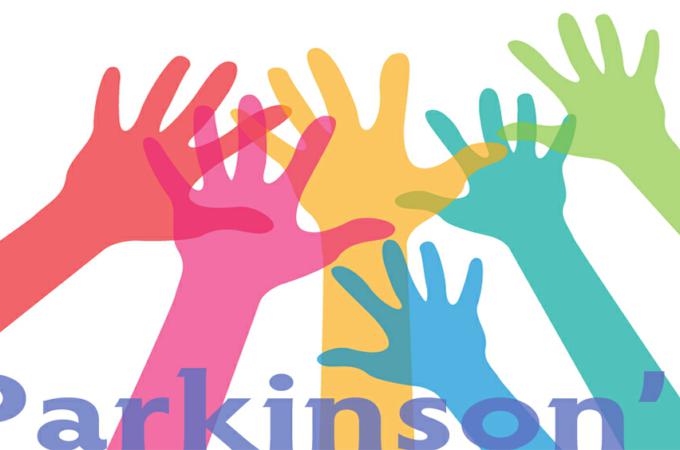Building a community of support for Parkinson's
People with Parkinson's seek out support for good reason: they confront chronic physical and non-physical symptoms that become increasingly difficult as the disease progresses. Parkinson's disease affects a part of the brain called the substantia nigra, whose neurons produce an important neurotransmitter called dopamine. Without adequate levels of dopamine in the brain, people with Parkinson's experience a loss of control over their physical movements, and may develop a variety of non-physical symptoms. Support networks provide a setting where people can manage symptoms and learn more about their Parkinson's diagnosis.
For years, Youville House has prioritized optimizing day-to-day life for Parkinson's residents through specialized programs, support groups, staff education and community presentations. This variety of approaches reflects the varied scope of Parkinsonian symptoms. "Dance with Parkinson's," held on Tuesday mornings at Youville, engages mind and body through the joyful medium of dance. Often, participants find themselves moving with a sense of freedom and coordination that they hadn't thought possible with Parkinson's. The Parkinson's Support Group, held monthly on Tuesday afternoons, offers a more direct form of group sharing and discussion around living with Parkinson's. Each group meeting focuses on a discussion topic such as exercise, sleep, depression, medication management, etc.
How Parkinson's effects daily life
The physical and emotional challenges of Parkinson's can feed back into one another in a frustrating loop. An Internet writer named Bev Ribaudo characterized her own experience with Parkinson's as a communications problem between the brain and the body. She has shared her insights online, on the Parkinson's Disease Foundation website (www.pdf.org). She compares Parkinson's to the squirrel that sabotaged her friend's car in high school. "This car seemed to have a mind of its own," she writes. "One day, you would turn on the radio and the headlights would come on. The next day, you would turn on the wipers and the horn would blow or the turn signals would come on." Her friend eventually discovered seeds on the floor of the car, leading to the discovery of the squirrel's secret habitat behind her dashboard and its effects on the car's wiring.
Like the friend whose car kept acting up, people with Parkinson's are often unsure what to expect from their bodies on a daily basis: will they be able to make the walk to the convenience store? When they get there, will they be able to articulate what they are looking for?
Common physical symptoms associated with Parkinson's
Symptoms vary and can be difficult to recognize. In the early stages they can be too mild to notice, and even after they progress they can be confused with other conditions. Symptoms can be treated and alleviated through medication, group support, specialized physical therapy and a variety of exercises.
-- Tremor: Approximately 70 percent of people first experience slight shaking in a hand or finger on one side of the body.
-- Slowed movement: Movements that were once automatic, such as taking a step forward or reaching for the phone, become more difficult and require deliberate effort.
-- Rigidity: Stiffened leg muscles can impede taking steps forward. A person with Parkinson's may not be able to swing their arms while walking.
-- Postural instability: Loss of control over muscle movement leads to a lack of balance and an increased risk for falls.
-- Speech problems: Neurological changes in the brain make it difficult to speak loudly, to intonate, and to articulate words clearly.
Parkinson's symptoms are not limited to movement disorders
Non-motor symptoms such as anxiety, depression, loss of bladder control, constipation and insomnia can impact quality of life even more than the movement-related symptoms. The good news is that many of these are treatable. It is important for people with Parkinson's to let their doctors know about non-motor symptoms as well as motor symptoms.
The Parkinson's Foundation recommends keeping a "symptom diary." This will help you monitor how your symptoms fluctuate throughout the day and will enable your doctor to make more informed, effective adjustments to your treatment and medication regimen. Specifically, "keep track of your pattern of 'on-times' (when medications work effectively) and 'off-times' (when medications wear off)."
While there is not yet a cure for Parkinson's, millions of dollars are invested each year in learning more about effective treatments for this elusive disease. Specialized voice treatment is available for those experiencing speech problems. Physical therapy and the regular practice of Tai Chi and dance have been found to improve postural stability and reduce falls.
For more information on Parkinson's programs and support services offered at Youville, contact Yanira Motto at 617-491-1234 or email info@youvillehouse.org.
- Adam Johnson writes for Youville Assisted Living Residences, member of Covenant Health Systems, a Catholic, multi-institutional health and elder care organization serving New England.



















